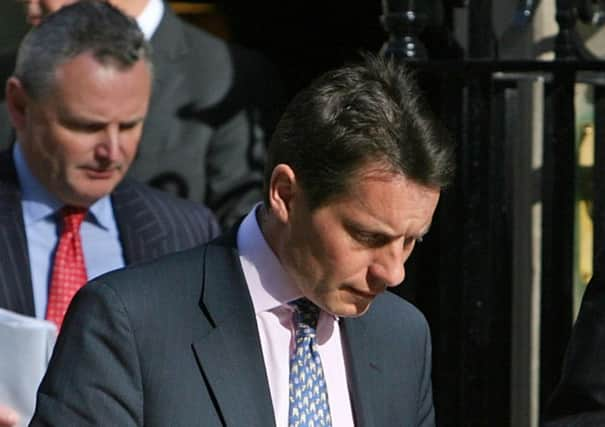Comment: What’s to be gained from HBOS prosecutions?


At least ten former executives including chairman Lord Stevenson, and chief executives James Crosby and Andy Hornby, pictured, could now be subject to formal investigations after a decision not to pursue them was described as “materially flawed”.
Many of the bank’s 1.2 million retail investors whose shareholdings were wiped out by the collapse would dearly wish so. The FCA recommends another report to ponder the issue next year before conclusions are reached.
Advertisement
Hide AdAdvertisement
Hide AdBut investors have already had to wait seven years after the collapse for last week’s report – itself delayed by two years. Fines at this stage are too late because the period covered by a statute of limitations expired during a prolonged period of pre-publication legal wrangling.
And does this latest report, exhaustive in detail, tell us much more about the cause of the collapse that we did not know already? This is the second time an official investigation has laid blame for the collapse of HBOS on its bosses. A previous parliamentary report said it was the result of a “colossal failure of management”.
However, I do wonder now whether much would be gained by further sanction against those in charge at the time. After successive official reports and analyses they already have the mark of Cain upon them.
Their reputations have been broken, the prospect of any senior position in financial services killed off and their careers effectively ruined. They will never escape the shadow cast by an era of grotesque mismanagement that saw an ill-judged lending spree end with bad debts of £45 billion. Peter Cummings, then head of corporate lending, has been fined £500,000 and banned for life. Crosby surrendered much of his pension and handed back his knighthood.
Horrific though the consequences of their incompetence and misjudgments were, there has never been evidence of criminal fraud or malfeasance. Indeed, up to the final weeks of the bank’s collapse, the bank’s senior management were not only convinced that the group would come out of this death spiral, but they also heavily backed this view with their own money.
In March of 2008 they bought 1.4 million shares at 446.25p, Hornby himself buying 92,812 shares. This action, they hoped, would stem the tide. Barely two months later, in the ill-fated £4 billion right issue, they took up their share allocations in full. Few others did.
These were not the actions of fraudsters but of a management deeply deluded. While there is an element of justice to their claim that the FCA report takes little account of the devastating maelstrom that overcame markets at this time and the evaporation of value in mortgage-related derivatives, the HBOS management oversaw exposures that were alien to the principles of prudent banking and blind to the huge risks being taken by retail bank that was at the time the largest mortgage lender in the UK.
How ironic, looking back on broker reports and media commentary at the time, that the main concern was not over bad debt exposure or derivative risk but minor percentage losses in lending market share.
Advertisement
Hide AdAdvertisement
Hide AdThe predatory culture of the time destroyed not one but two previously conservatively run banks. Tighter regulation and more effective separation of retail and investment banking operations will help prevent a recurrence. But the most effective sanction of all is less further action against those already discredited but the persistence of memory: the horrendous losses suffered by investors needs to be permanently ingrained in the history of this era.
Dividend warning
A timely warning on dividend yields and tumbling dividend cover has come from analysts at broker Canaccord Genuity.
Don’t assume that this is a problem confined to the energy and commodity sectors.
The firm’s analysts have calculated that dividend cover on UK ‘large cap equities’, akin to FTSE 100 and FTSE 250 stocks, has fallen to 1.6 times, the lowest level since the bursting of the technology bubble in 2011.
Dividend cover is the ratio of the company’s earnings a year to the amount paid out in dividends. And this is critically dependent on cash flow return on capital. Analysts say that among some of the UK’s biggest stocks, cash flow return on capital is falling.
Current levels of dividend cover and reserves should give some comfort. But prospects for some of the higher-yielding FTSE100 companies are darkening, and that has implications for share ratings.